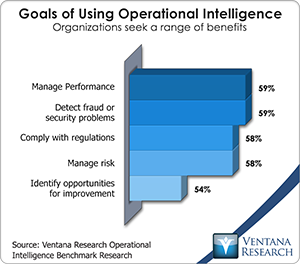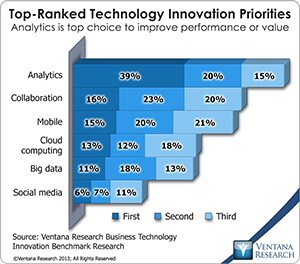SYSPRO is a 35-year-old ERP vendor that focuses on products for midsize companies, particularly those in manufacturing and distribution. In manufacturing, SYSPRO supports make, configure and assemble, engineer to order, make to stock and job shop environments. The company attempts to differentiate itself through vertical specialization and its years of ongoing development, which can reduce the need for customization and cut the cost of initial and ongoing configuration to suit the needs of companies in these industries, thereby cutting the total cost of ownership. Worldwide its targeted verticals include electronics, food, machinery and equipment and medical devices; in the United States, it adds automotive parts (original equipment and after-market) and energy.
Continuing to expand its product portfolio, SYSPRO recently introduced  new modules for voyage and container tracking that should be of interest to manufacturing or distribution companies that import goods or parts. These are designed to be the missing link in supply chain management (SCM), connecting the flow of data from purchase order to physical receipt of the goods at a factory, warehouse or distribution center. Integrating voyage and container tracking into its ERP system enables such a company to have a centralized view of the full supply chain, providing fuller and more consistent visibility into the status of inventories from the point of their acquisition and therefore an easier and more effective means of supply chain and sales and operations planning (S&OP). Such a system could replace the sets of disconnected spreadsheets stored on individual computers in many companies, and the time is right to do that. Today’s longer supply chains introduce greater risk and uncertainty in SCM and S&OP. SYSPRO’s new modules can help companies with long supply chains mitigate this risk and provide greater agility to respond to changes in the status of inventories as they occur in transit. Bringing together this information with the full range of data captured in its ERP system also should give companies a better understanding of their performance. This is consistent with our benchmark research on operational business intelligence, which finds managing performance and risk and identifying improvement opportunities among the top five reasons for using operational intelligence. SYSPRO’s initial release of the two modules supplies the basics needed to assign purchase orders to specific containers, assign customer orders to the inventory in the containers and assign containers to specific vessels. The product roadmap calls for substantial enhancements in built-in analytics and physical tracking (knowing the location of specific containers)that buyers will find useful.
new modules for voyage and container tracking that should be of interest to manufacturing or distribution companies that import goods or parts. These are designed to be the missing link in supply chain management (SCM), connecting the flow of data from purchase order to physical receipt of the goods at a factory, warehouse or distribution center. Integrating voyage and container tracking into its ERP system enables such a company to have a centralized view of the full supply chain, providing fuller and more consistent visibility into the status of inventories from the point of their acquisition and therefore an easier and more effective means of supply chain and sales and operations planning (S&OP). Such a system could replace the sets of disconnected spreadsheets stored on individual computers in many companies, and the time is right to do that. Today’s longer supply chains introduce greater risk and uncertainty in SCM and S&OP. SYSPRO’s new modules can help companies with long supply chains mitigate this risk and provide greater agility to respond to changes in the status of inventories as they occur in transit. Bringing together this information with the full range of data captured in its ERP system also should give companies a better understanding of their performance. This is consistent with our benchmark research on operational business intelligence, which finds managing performance and risk and identifying improvement opportunities among the top five reasons for using operational intelligence. SYSPRO’s initial release of the two modules supplies the basics needed to assign purchase orders to specific containers, assign customer orders to the inventory in the containers and assign containers to specific vessels. The product roadmap calls for substantial enhancements in built-in analytics and physical tracking (knowing the location of specific containers)that buyers will find useful.
Tracking the location and projecting the expected arrival of products, parts and supplies from the physical receipt of those goods enables a company to manage its supply chain more intelligently. That is, knowing exactly what inventory is in which containers, which containers are on which ship and when individual ships are expected to arrive provides the ability to plan and allocate inventory further back in the supply chain with greater certainty. It makes supply chain planning and management as well as an S&OP process more effective with much less effort since the information about the inventory is timely, reliable, consistent and integrated with the full ERP system and kept in a central data repository. Reliable data about inventory in transit is available immediately and updates about departure and expected arrival information can provide earlier visibility into supply and scheduling issues. Users also have the ability to allocate individual goods or parts to specific customers, distribution or production locations from the point at which the inventory is loaded into the container. As conditions change, companies can update these allocations. While it happens rarely, containers sometimes are lost at sea (approximately 10,000 annually – about 0.1% of those in use) or destroyed during loading or unloading. Shipping schedules are inexact, and there can be delays caused by strikes, quarantines or official inspections that are difficult or impossible to predict with any certainty. These are ample reasons to invest in software that enables more flexible planning and reaction.
Integrating data about inventory along an extended supply chain also can provide managers and executives with a more robust set of analytics that are available on a more timely basis with far less effort than what’s required when the data is stored and managed in desktop spreadsheets. Companies are better able to track suppliers (freight forwarders and shippers), measure and track the accuracy of the container manifests (actual items vs. bills of lading) and keep tabs on these over time to rate supplier reliability or isolate seasonal or other factors and make more intelligent more choices and potentially more accurate plans. Companies also can assign voyage- or container-specific charges to individual inventory items to better understand to total, as-delivered cost of items.
All of the information that SYSPRO’s ERP system collects is available on mobile devices using its Espresso platform. In our research on business technology innovation companies listed mobility as their third-most important technology innovation priority; it enables anytime, anywhere access to data, reports, dashboards and analytics. Especially for those who aren’t working at a desk in an office (such as sales people tracking orders or manufacturing or supply chain managers), access to this information on a mobile device can improve performance by providing more timely alerts and the ability to collaborate more intelligently to advance a process.
on mobile devices using its Espresso platform. In our research on business technology innovation companies listed mobility as their third-most important technology innovation priority; it enables anytime, anywhere access to data, reports, dashboards and analytics. Especially for those who aren’t working at a desk in an office (such as sales people tracking orders or manufacturing or supply chain managers), access to this information on a mobile device can improve performance by providing more timely alerts and the ability to collaborate more intelligently to advance a process.
To SYSPRO customers that regularly use container shipping I recommend evaluating how the voyage and container modules might allow them to manage these supply chains and their sales and operations planning more effectively, while reducing the time they may be spending using desktop spreadsheets to manage these elements of their business. I also recommend that midsize companies (or midsize divisions of larger companies) in SYSPRO’s target verticals that are considering purchase of an ERP system and that need to manage long supply chains that utilize container shipping should put SYSPRO on their list of vendors to evaluate. Be aware that because the new modules are designed to be part of an integrated ERP system, they are impractical for purchase as stand-alone software or integrated into another vendor’s ERP system.
Regards,
Robert Kugel – SVP Research












